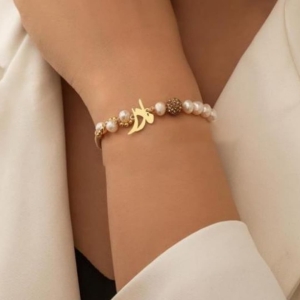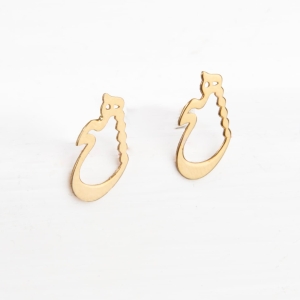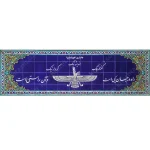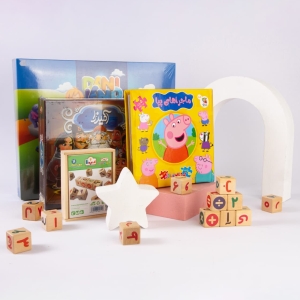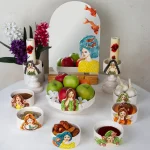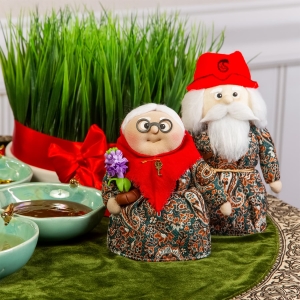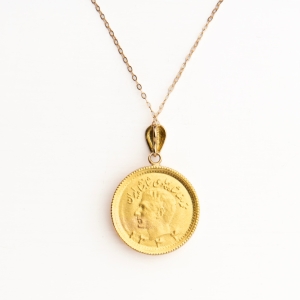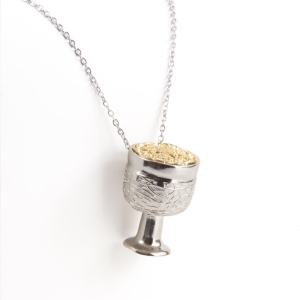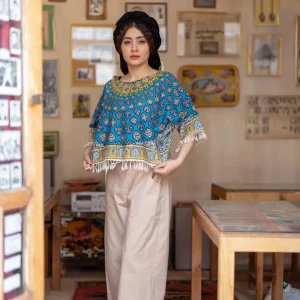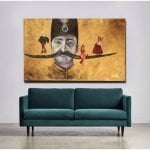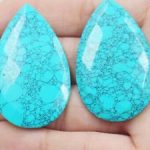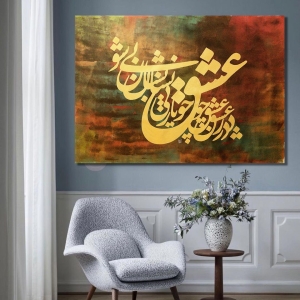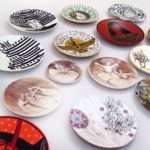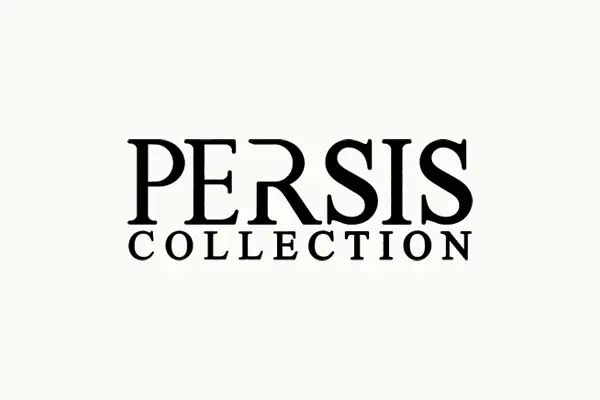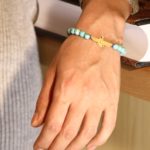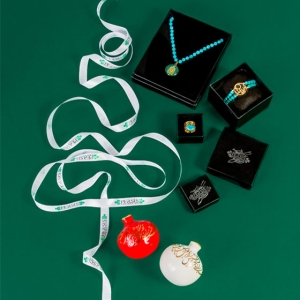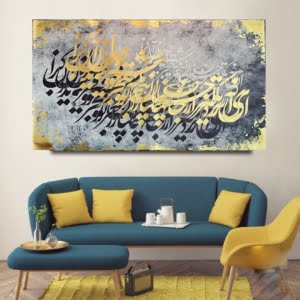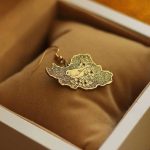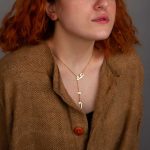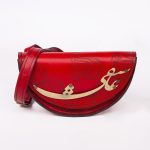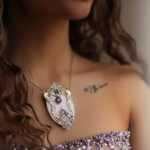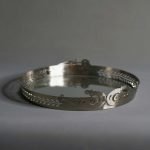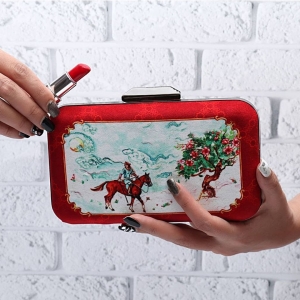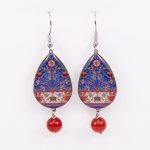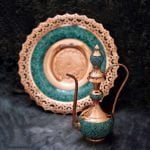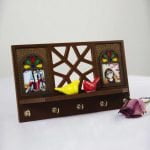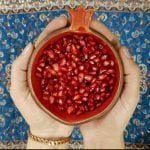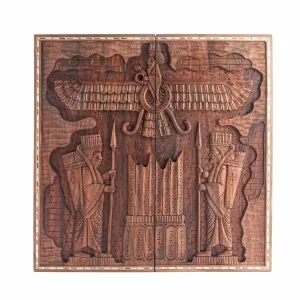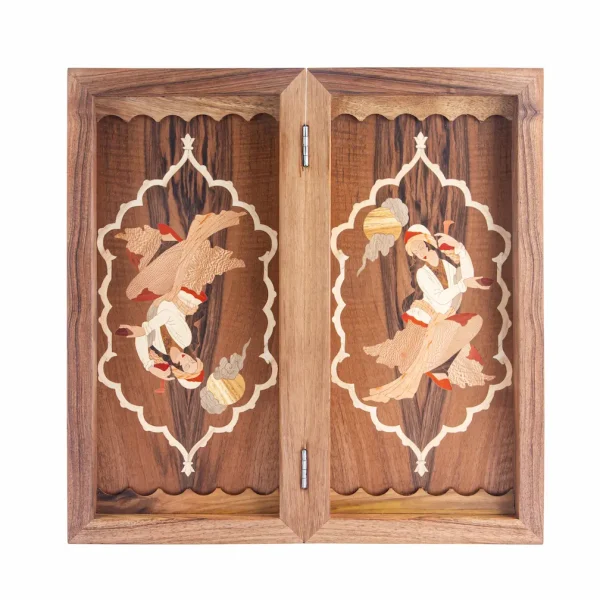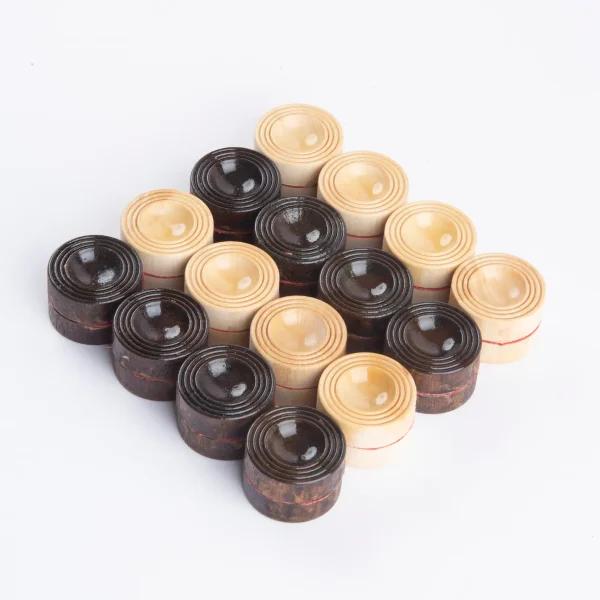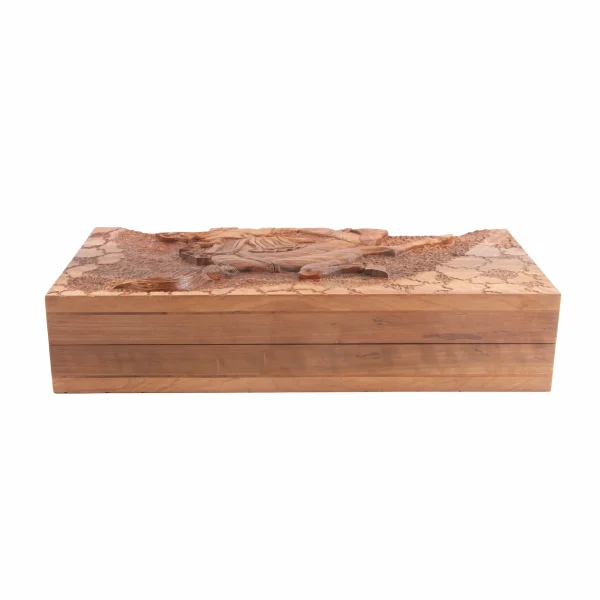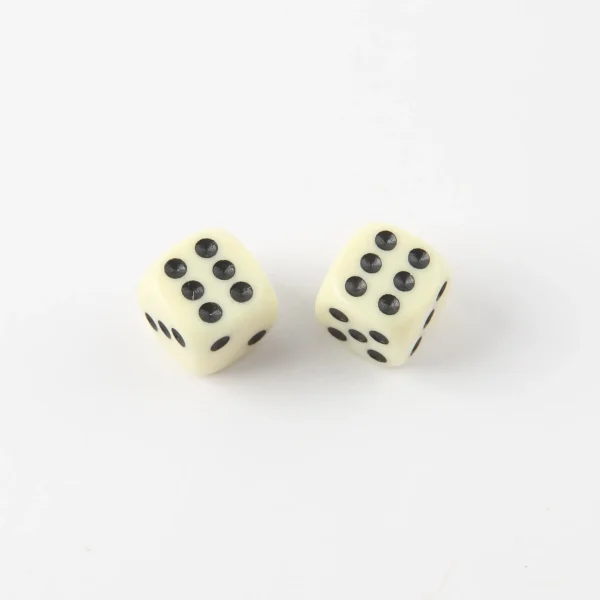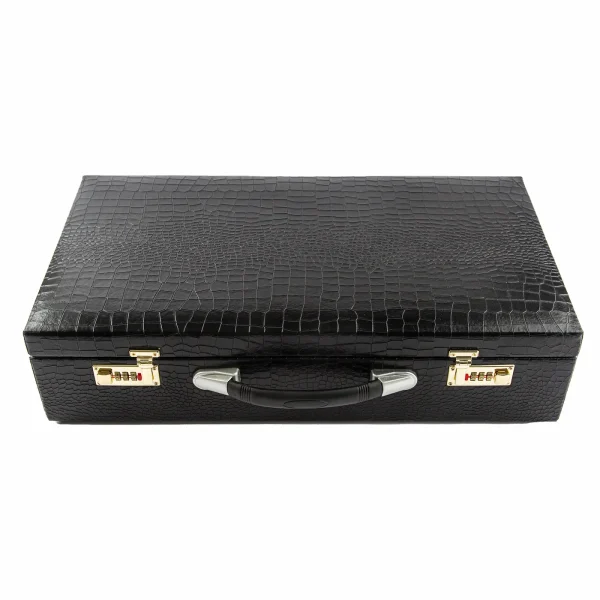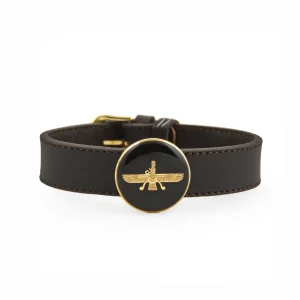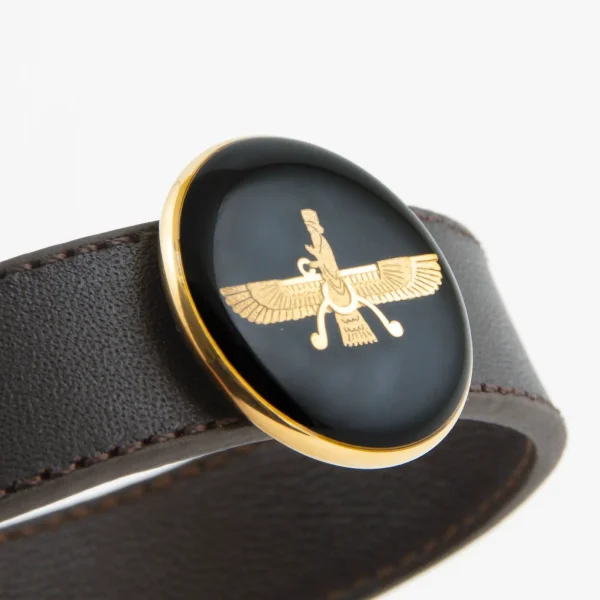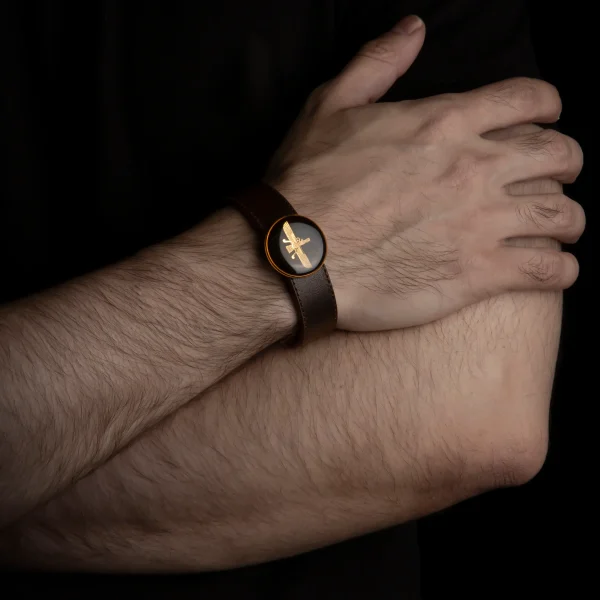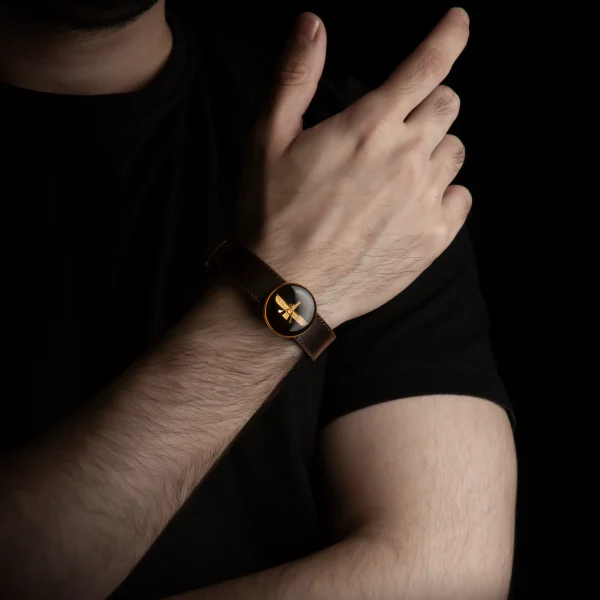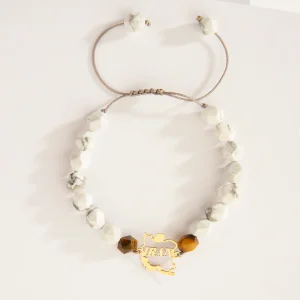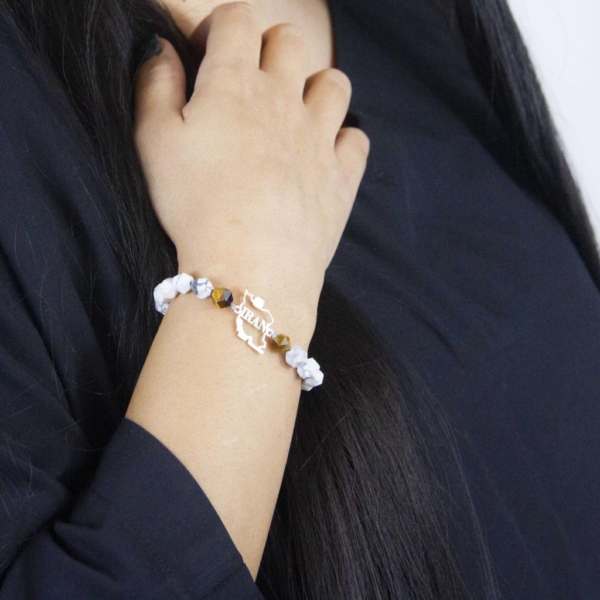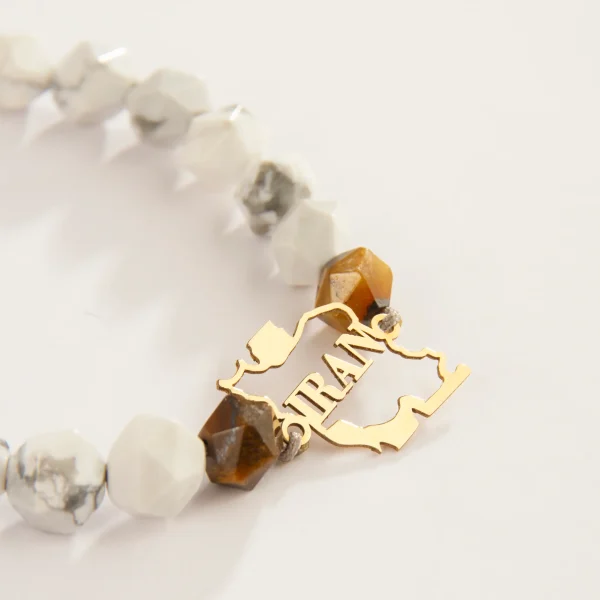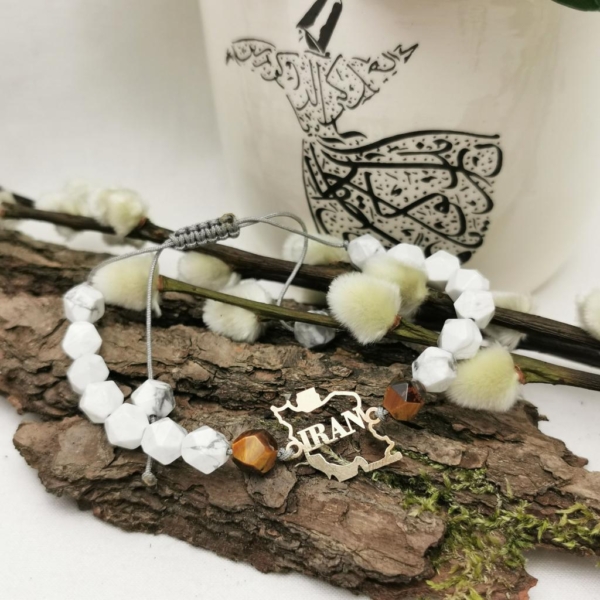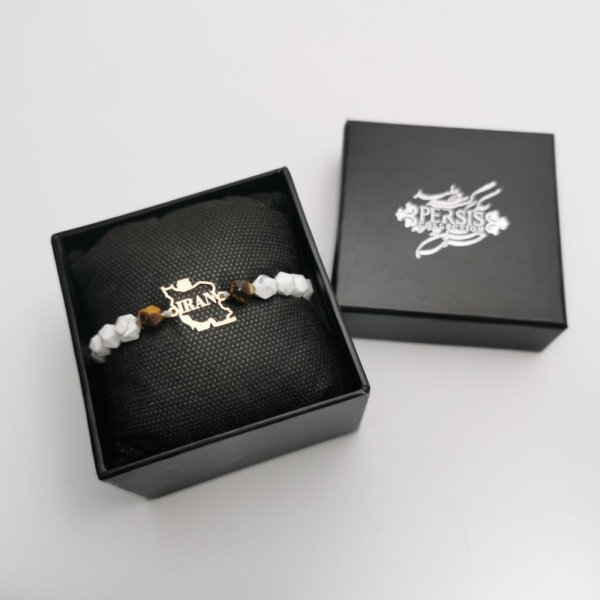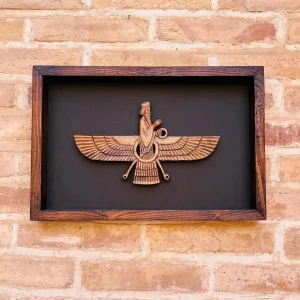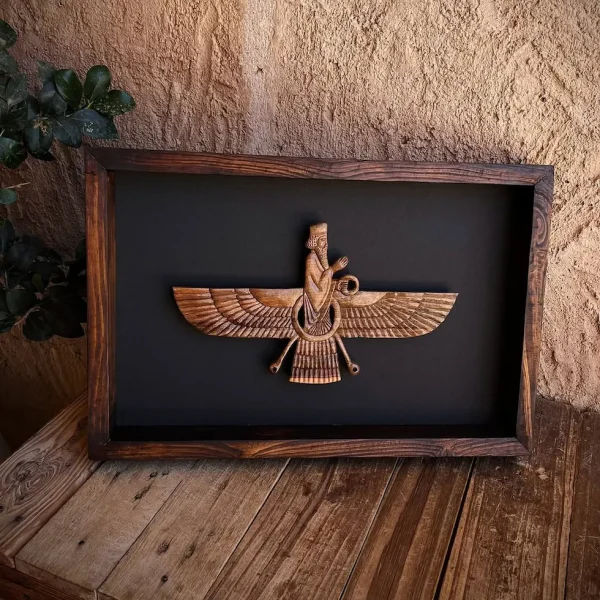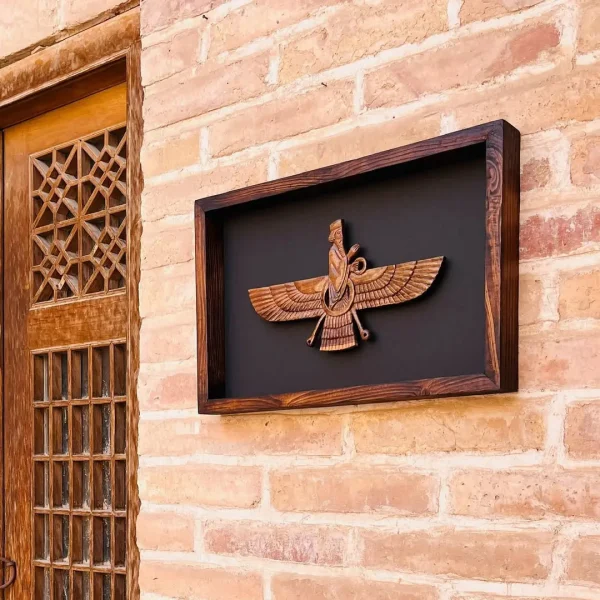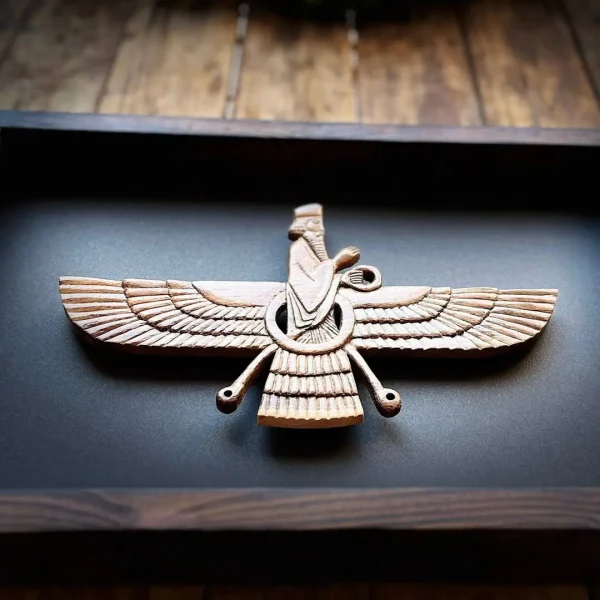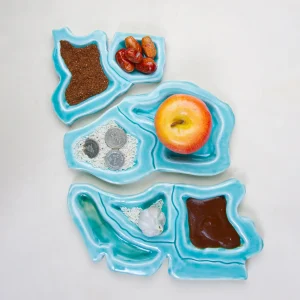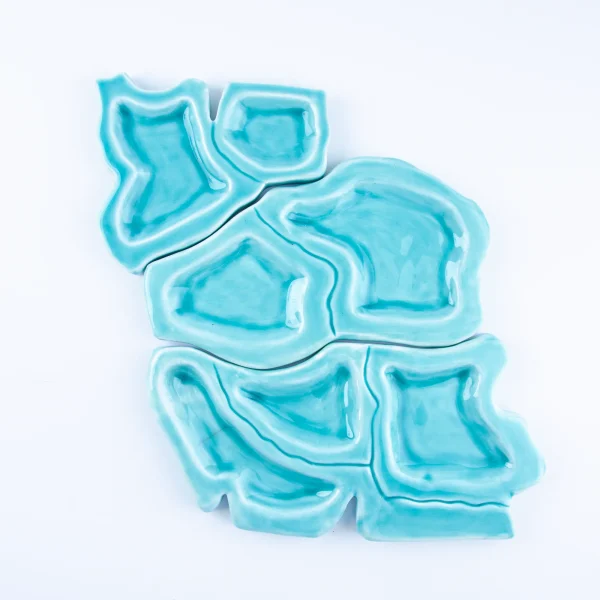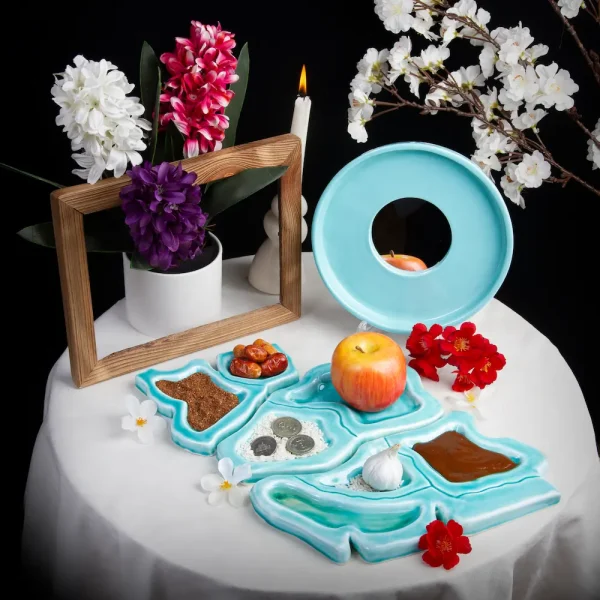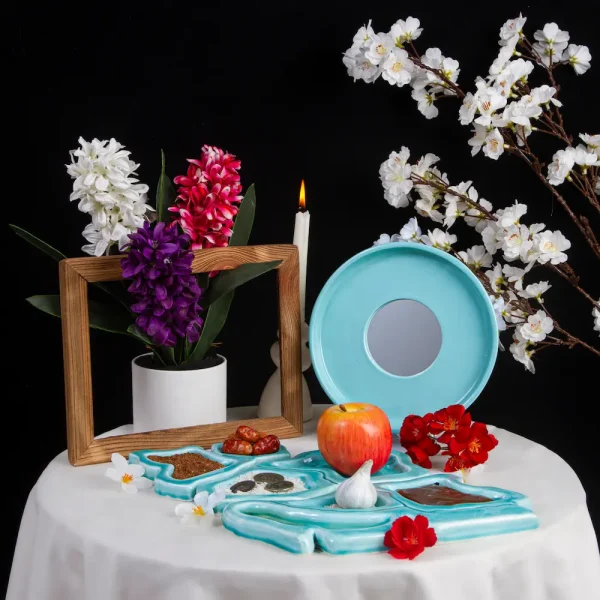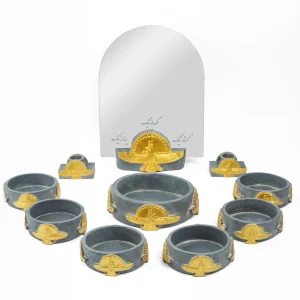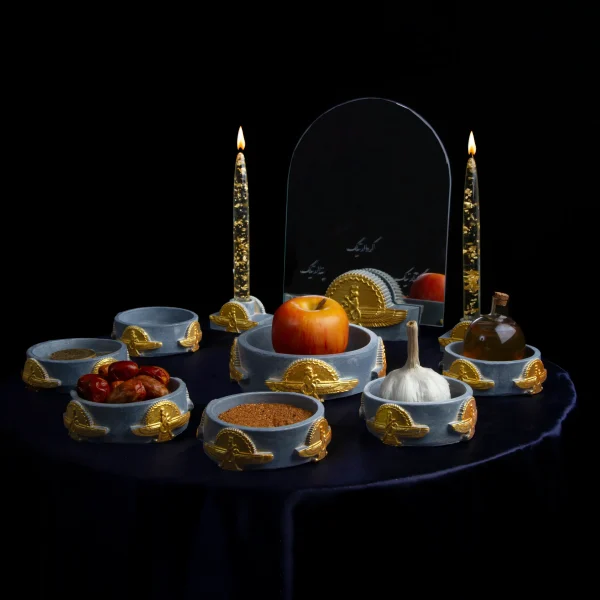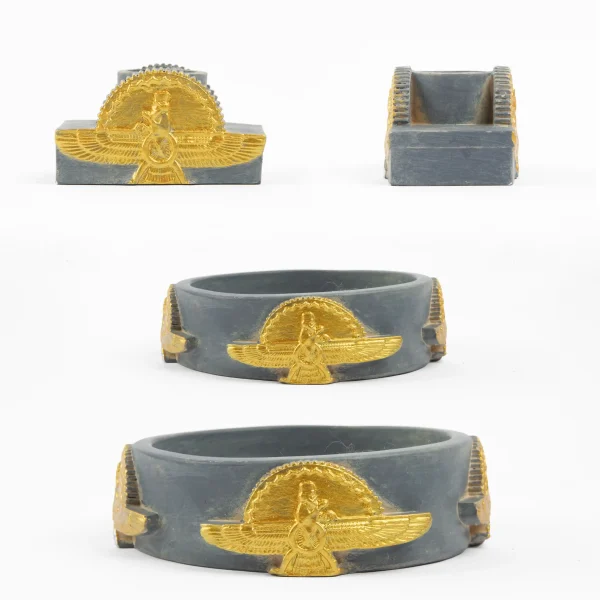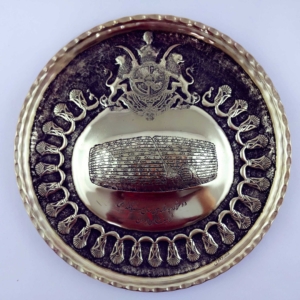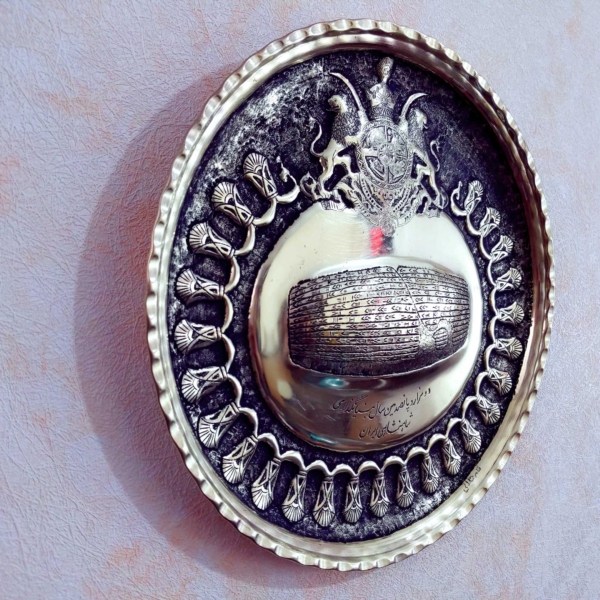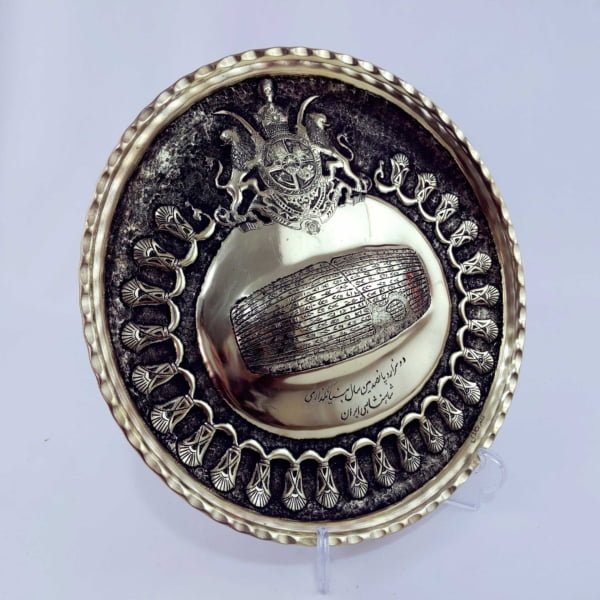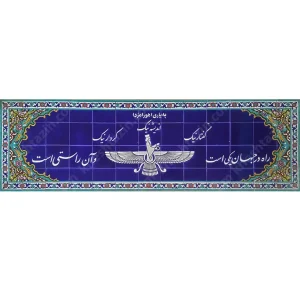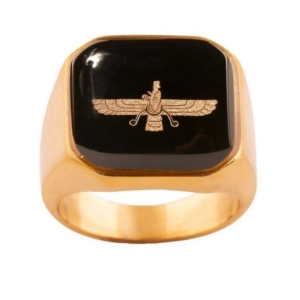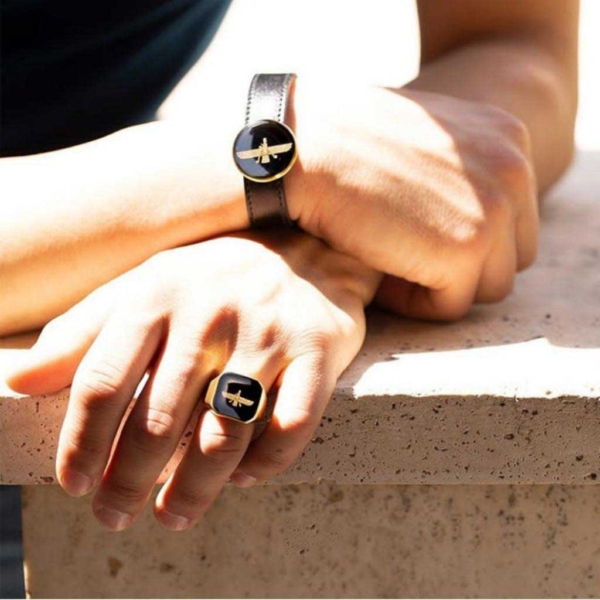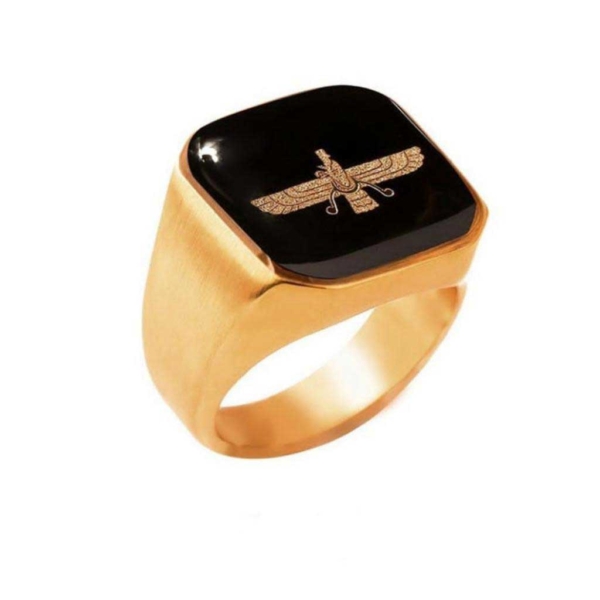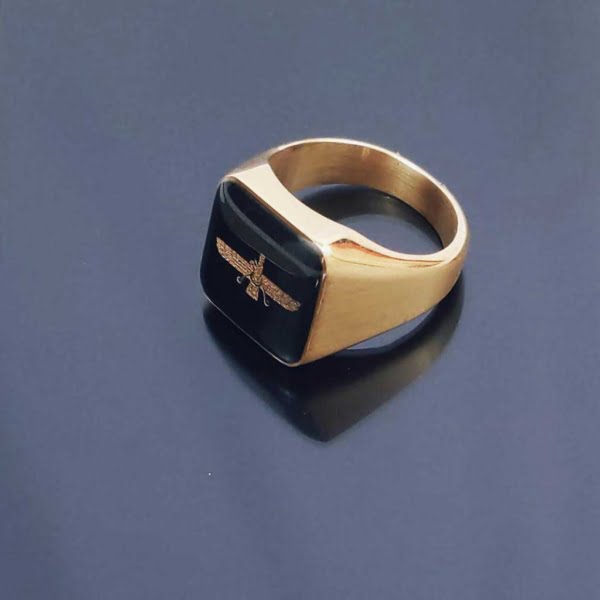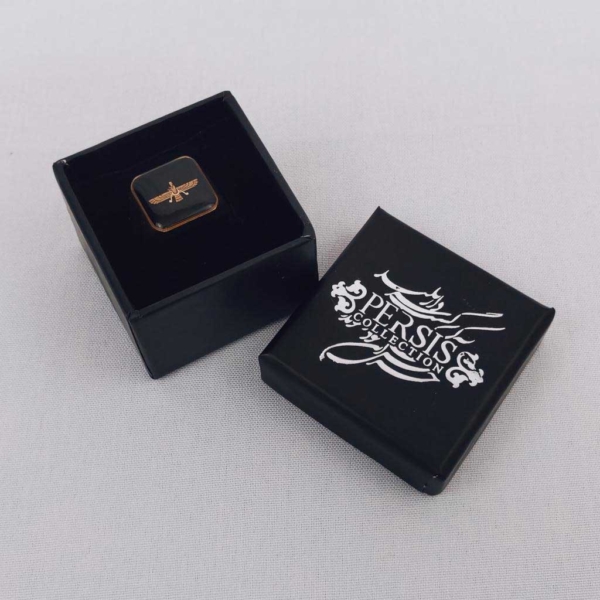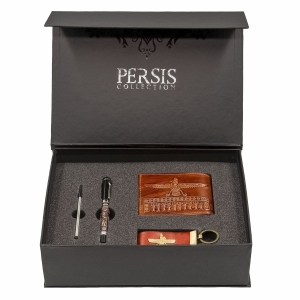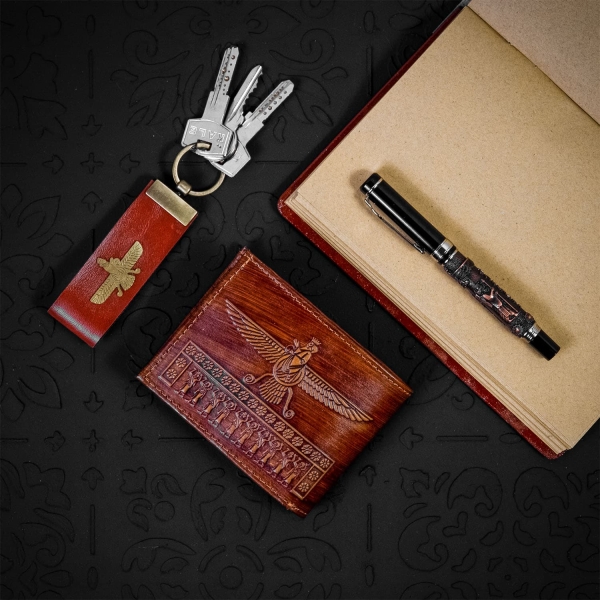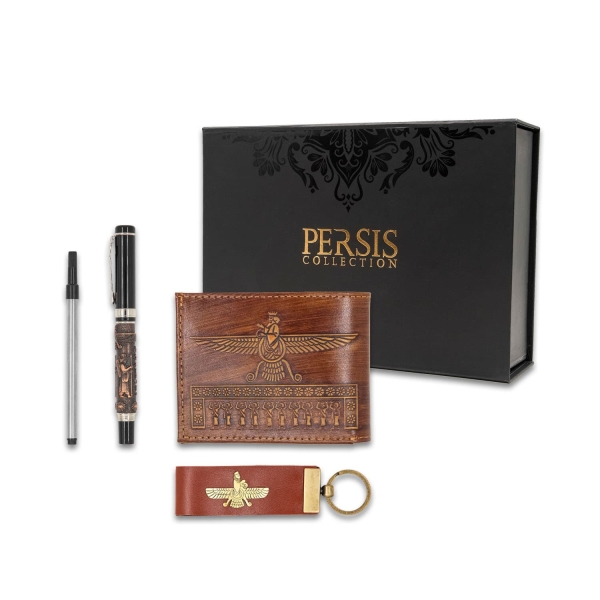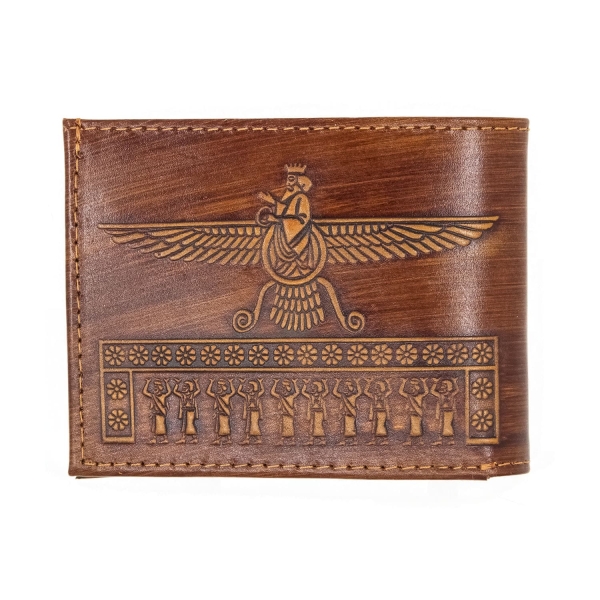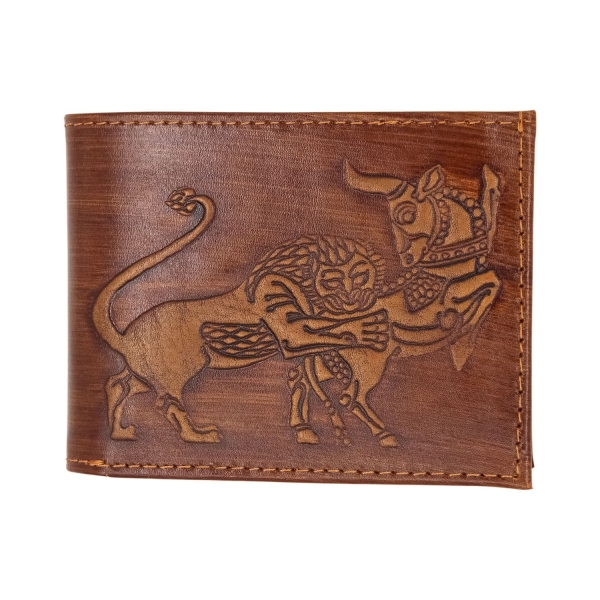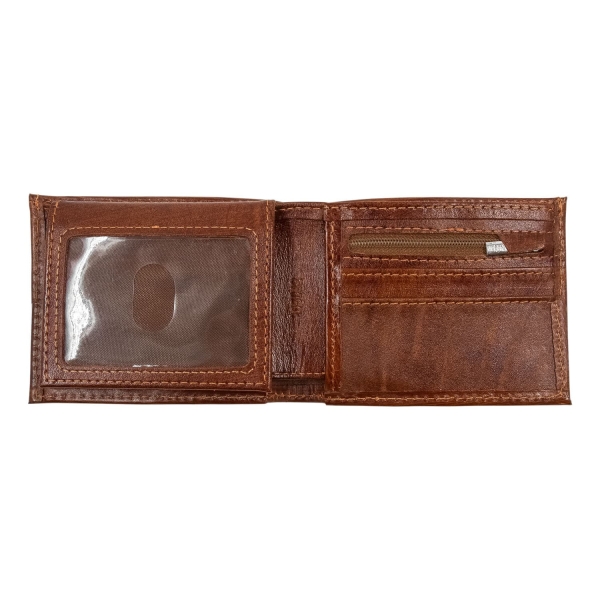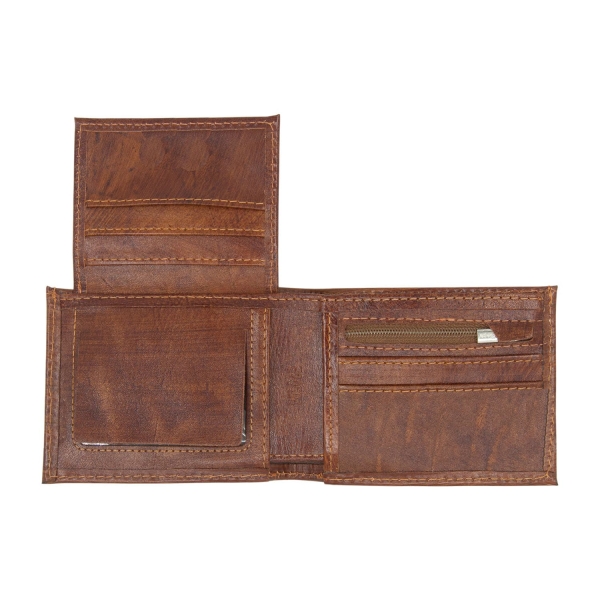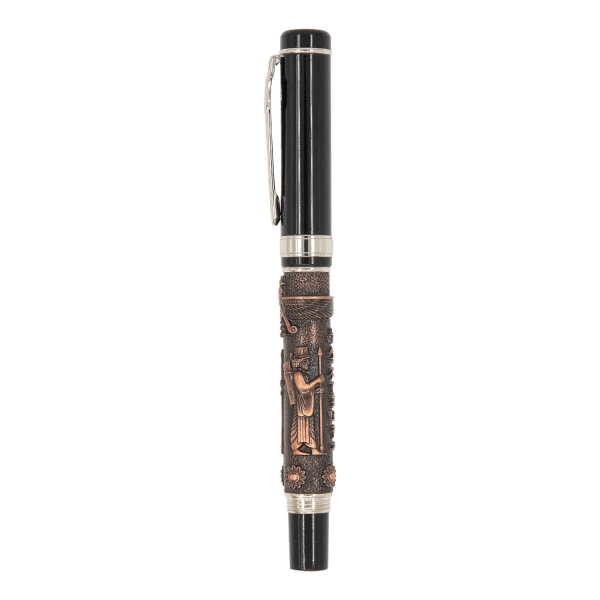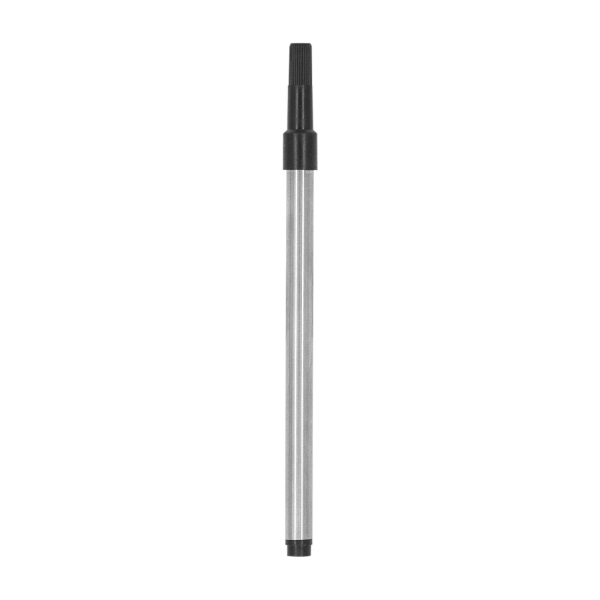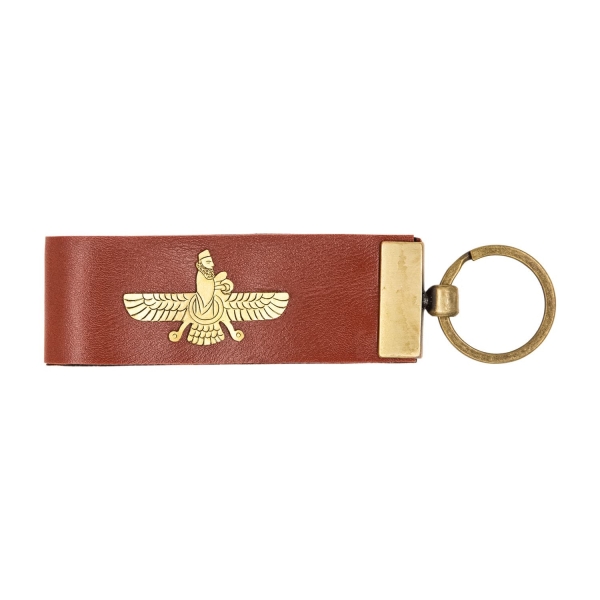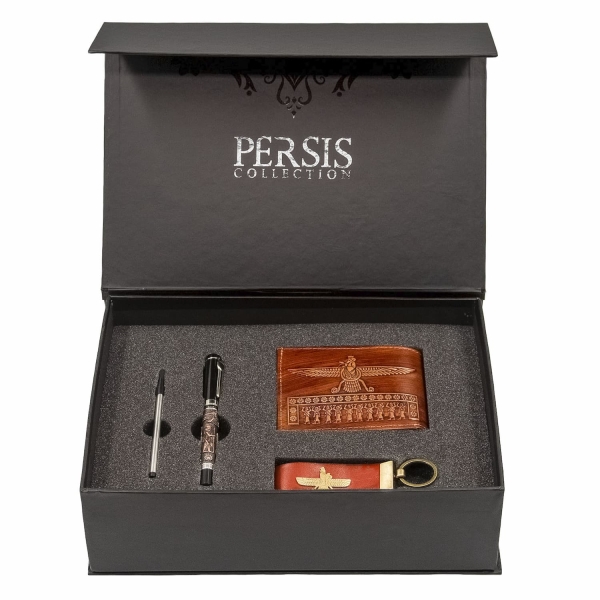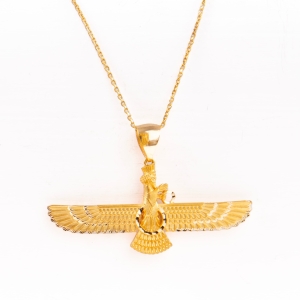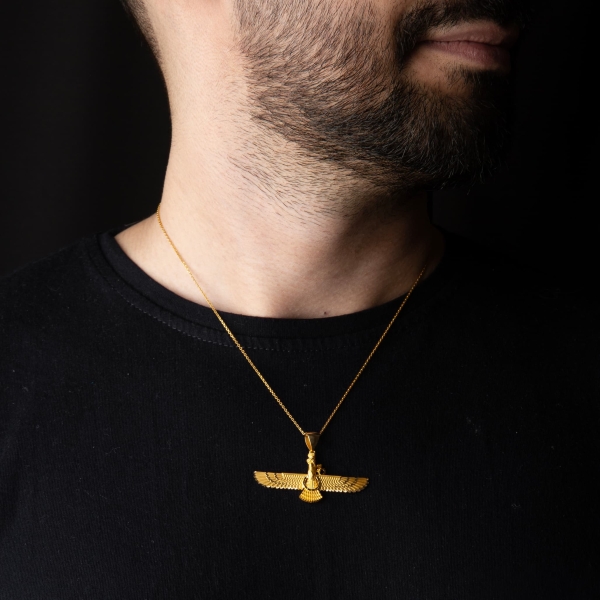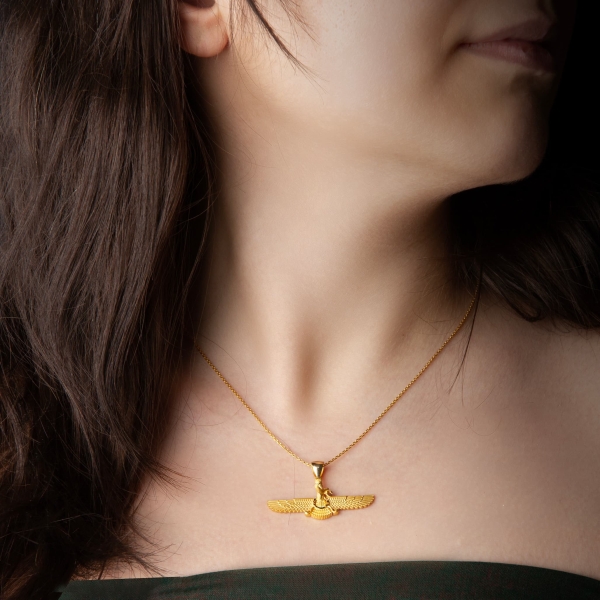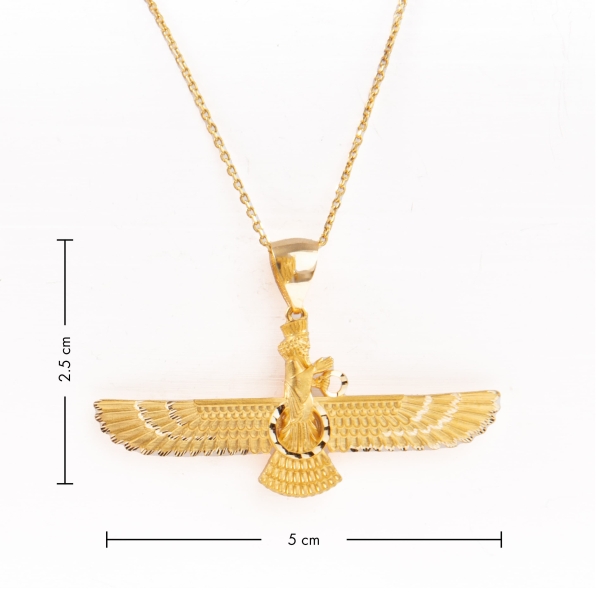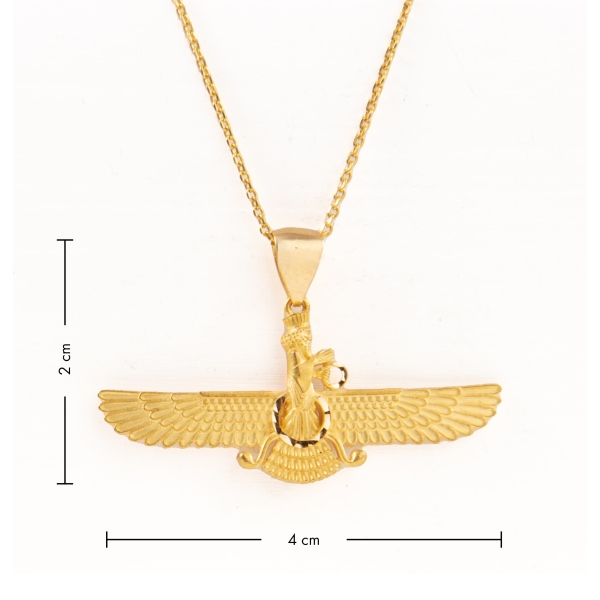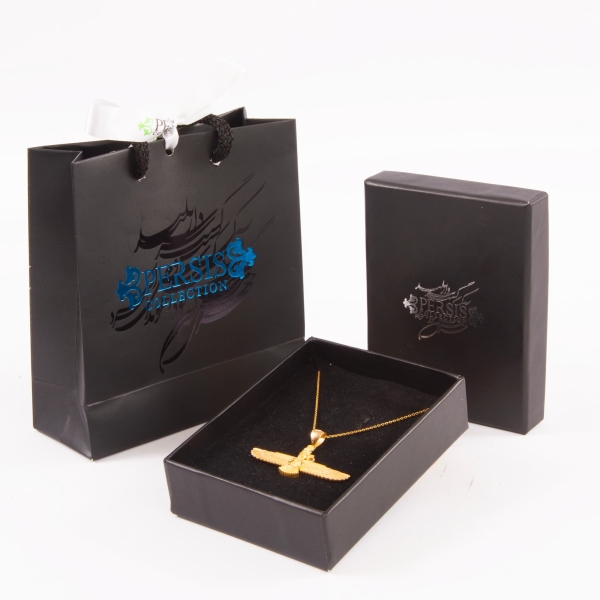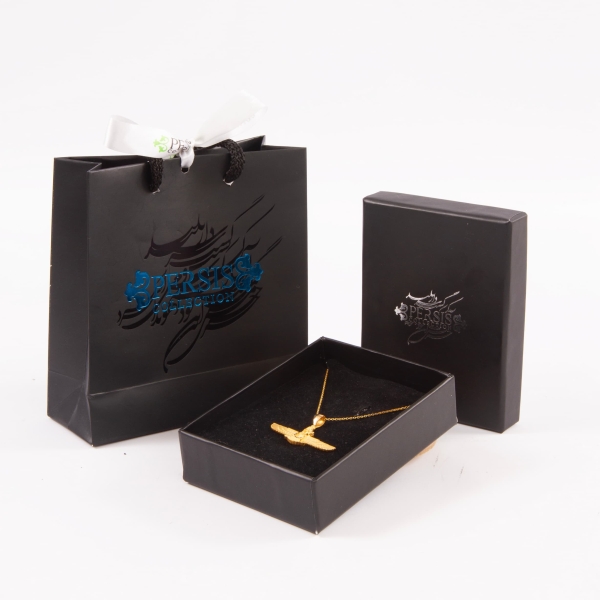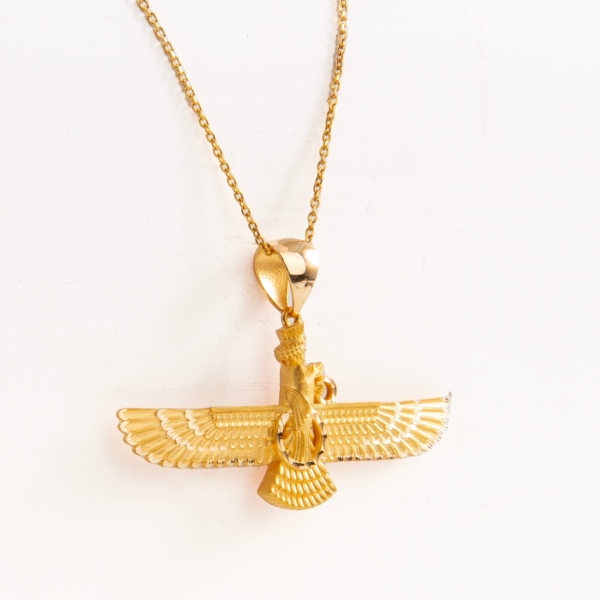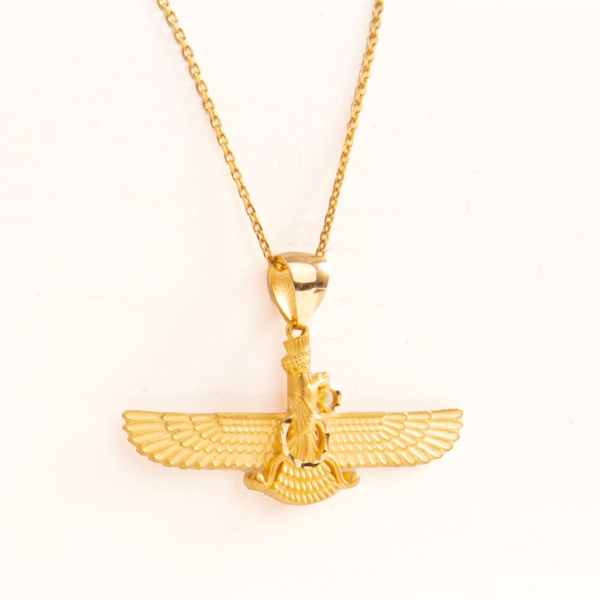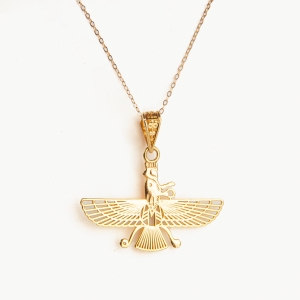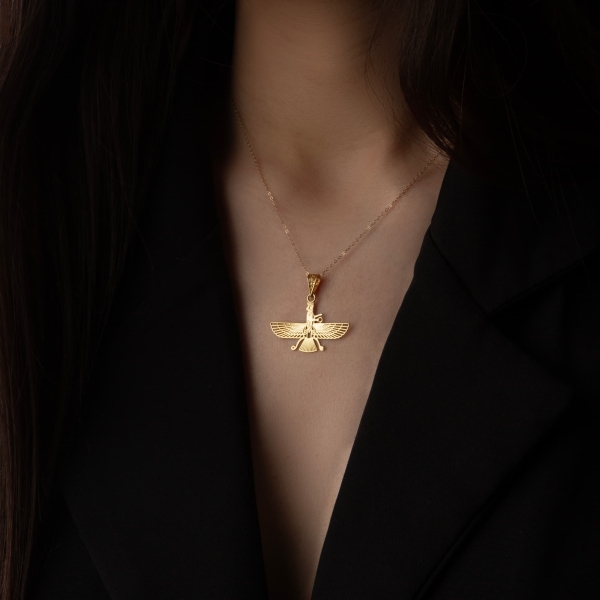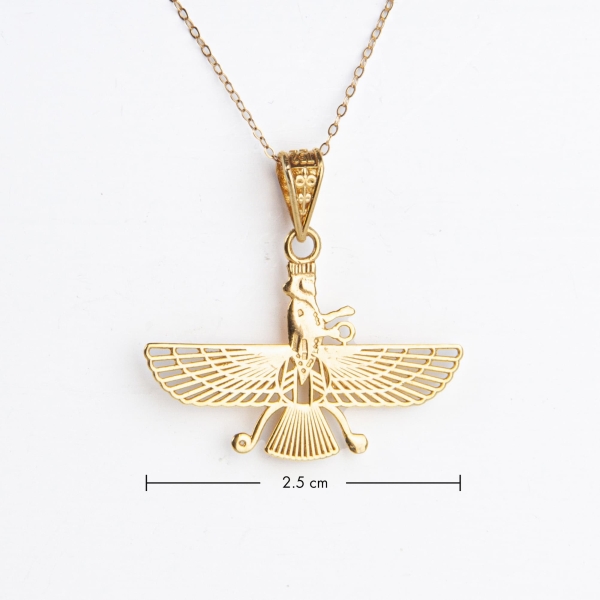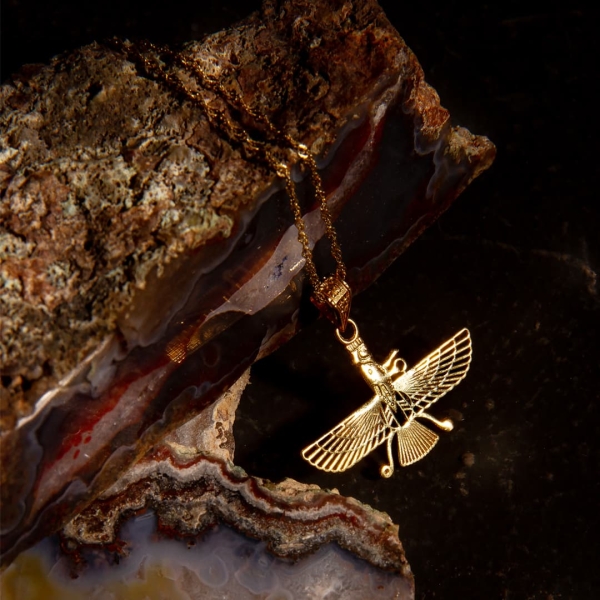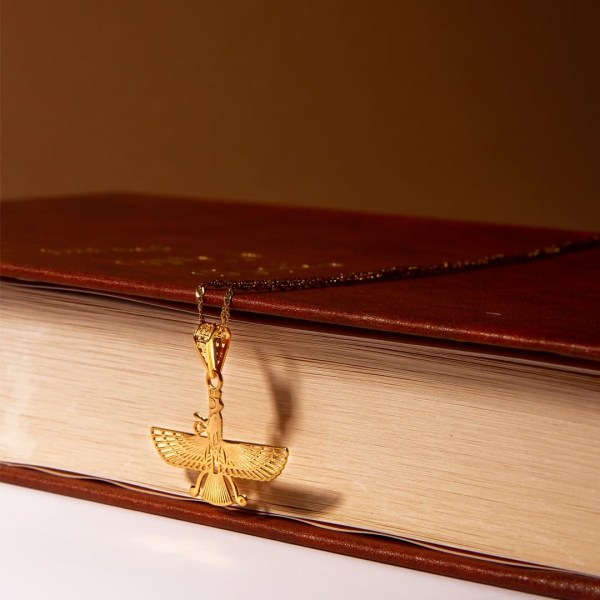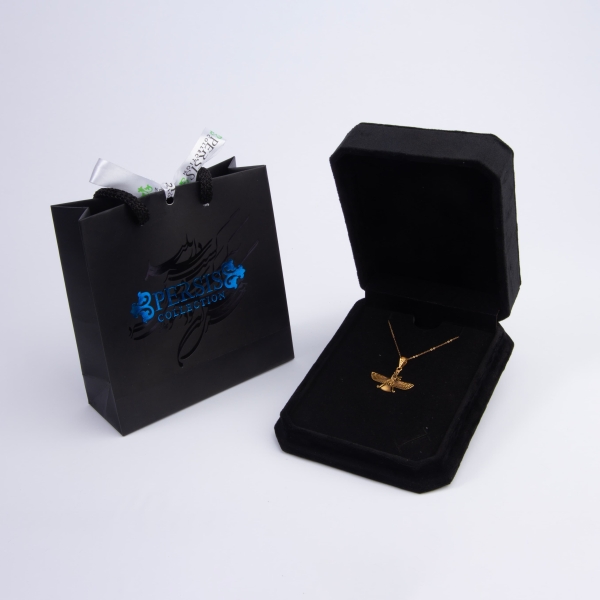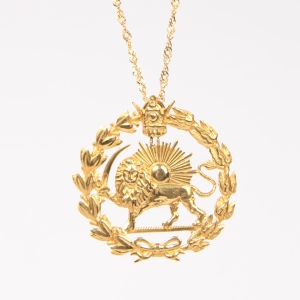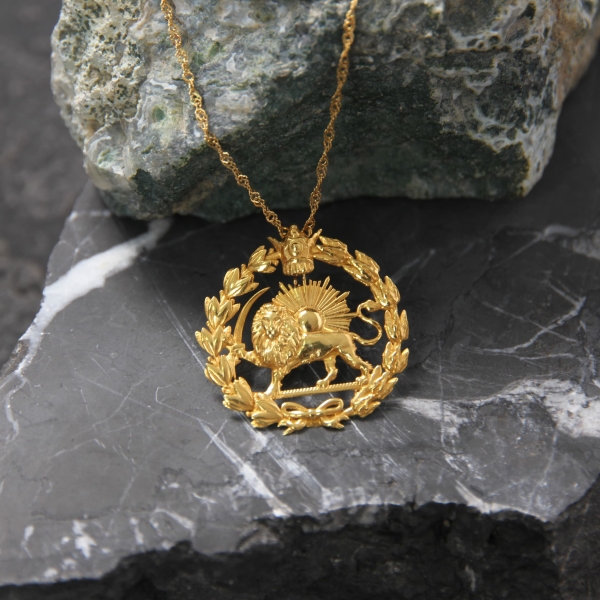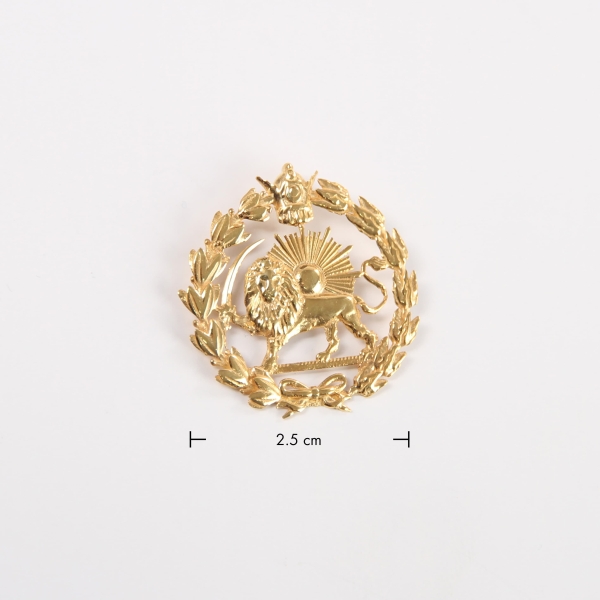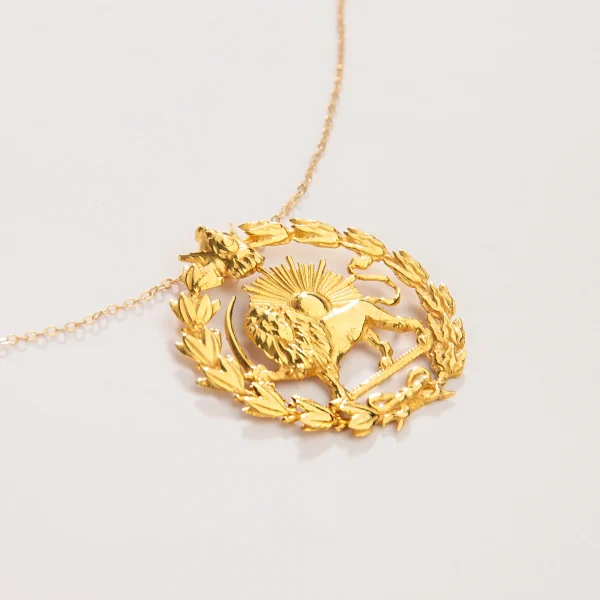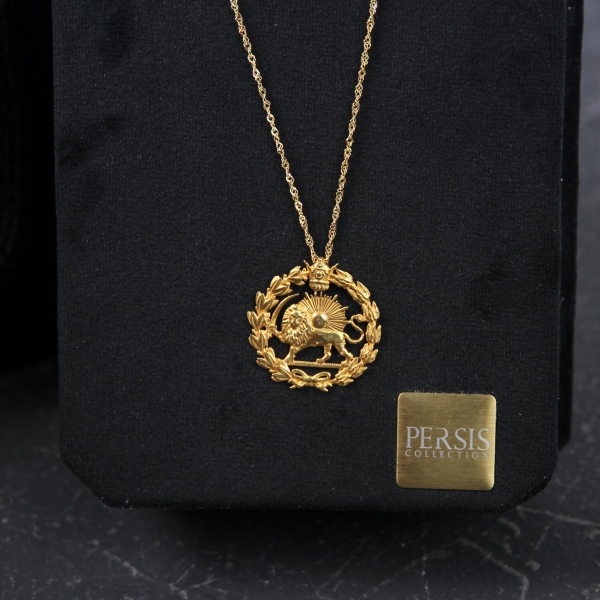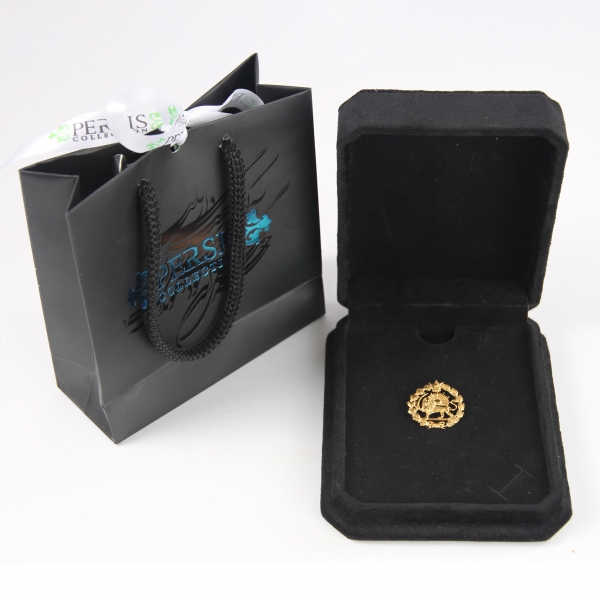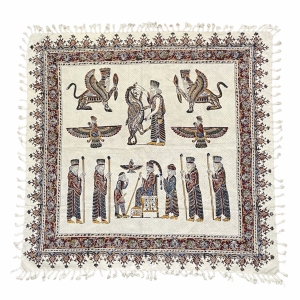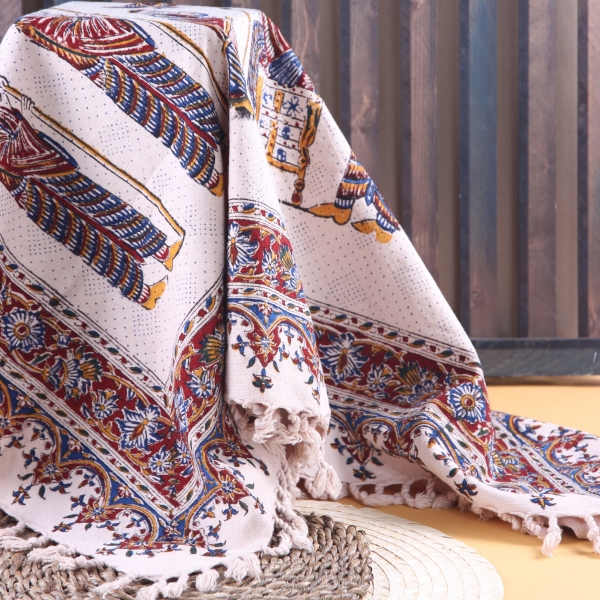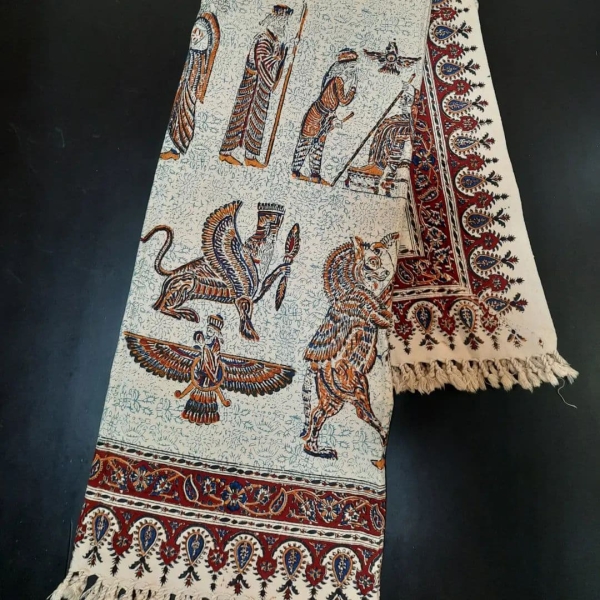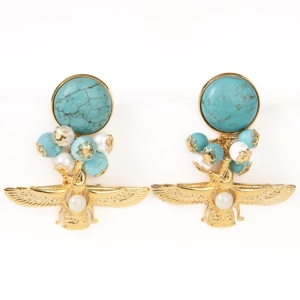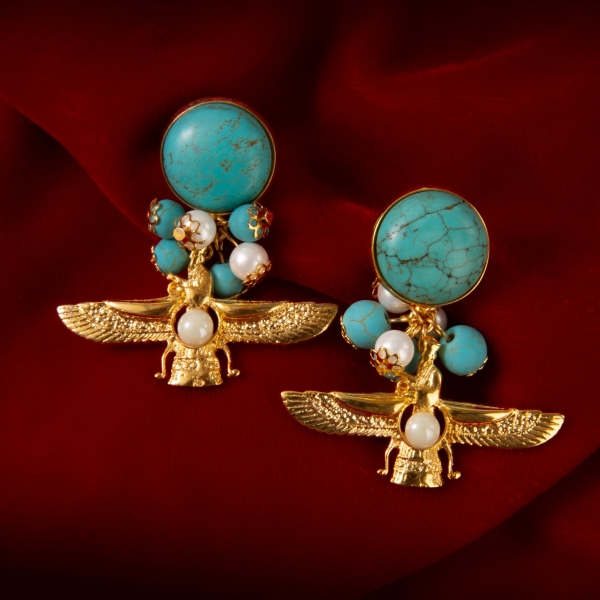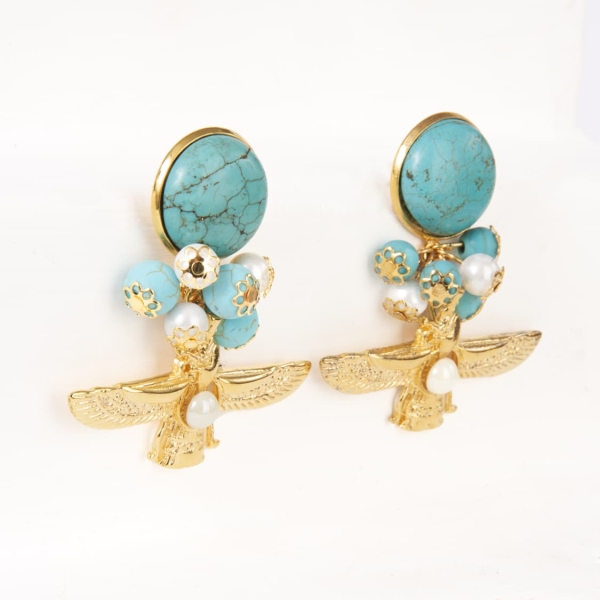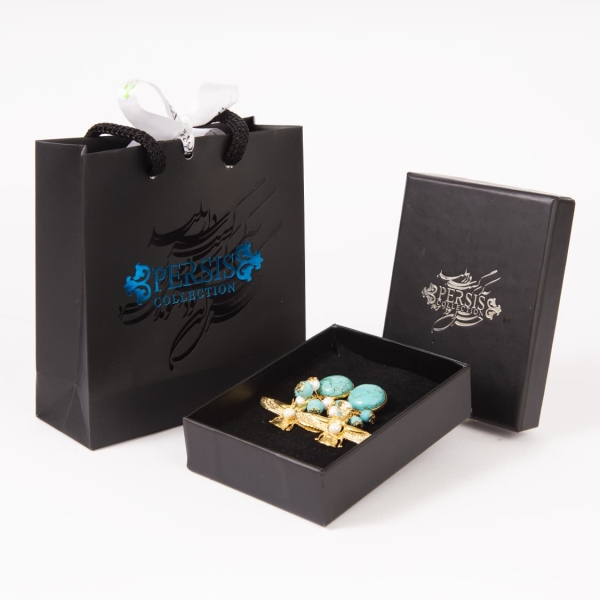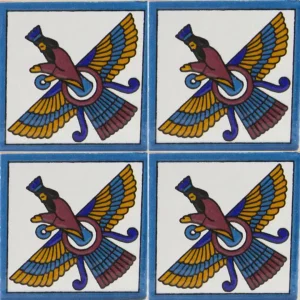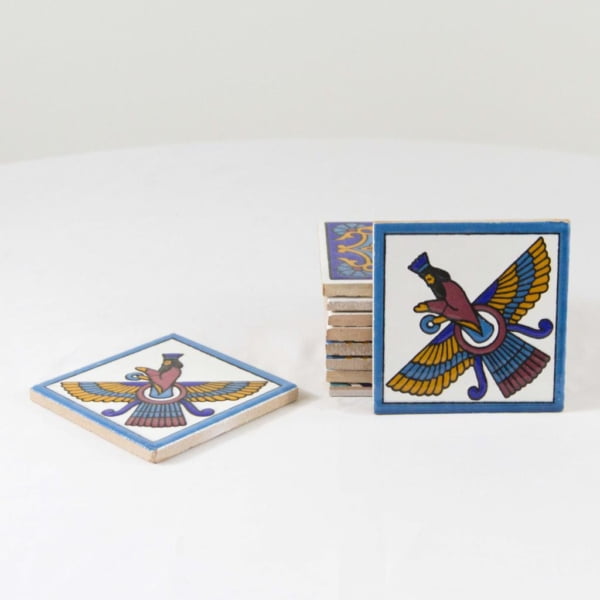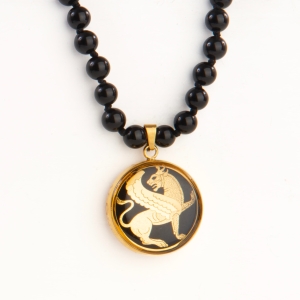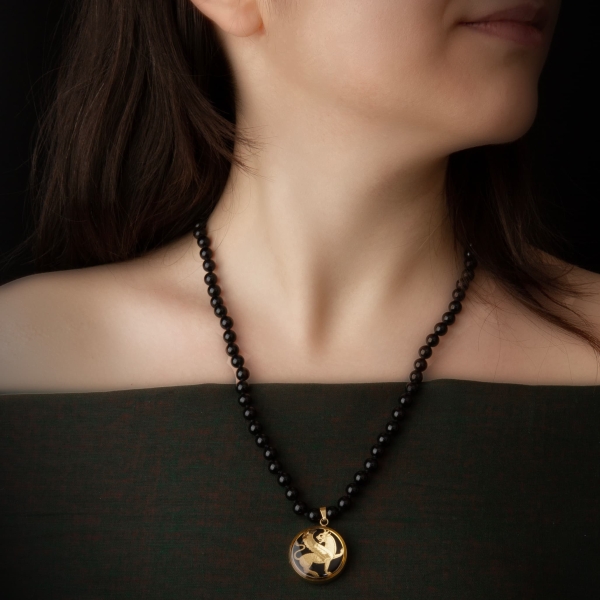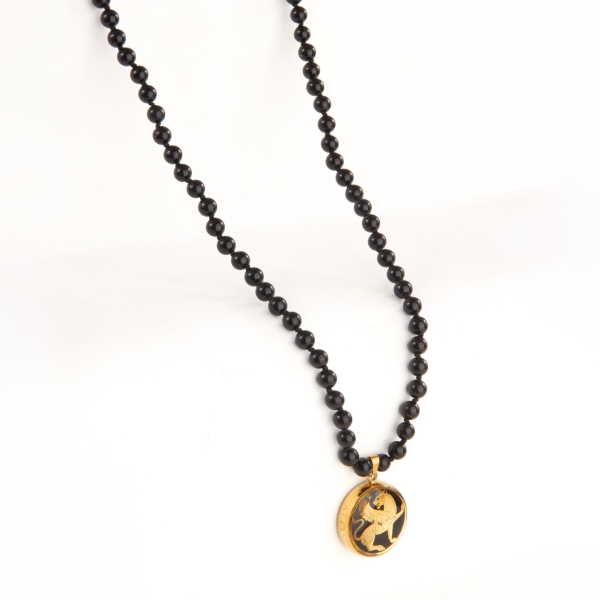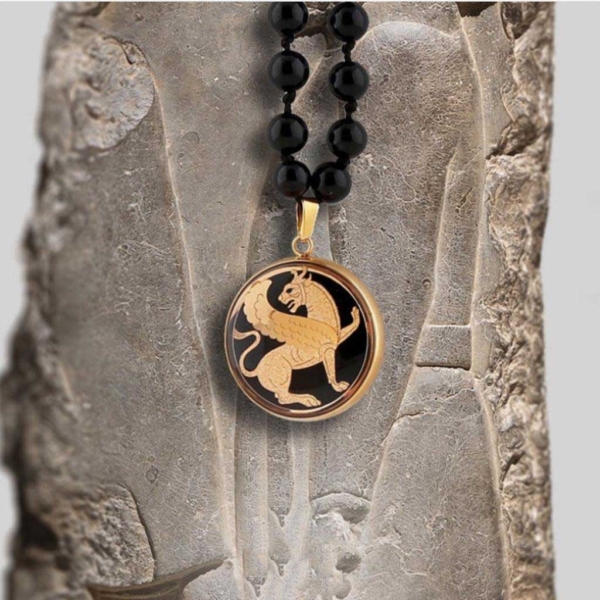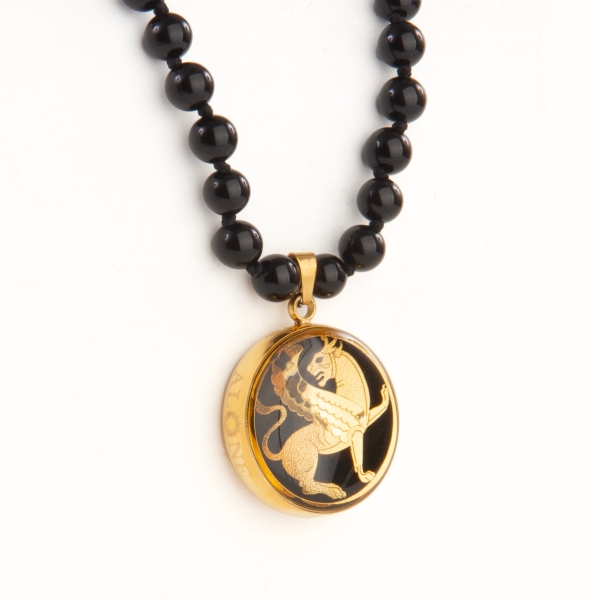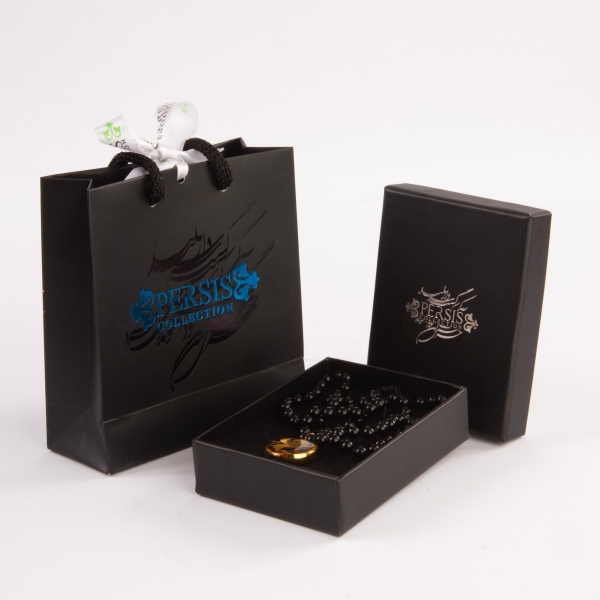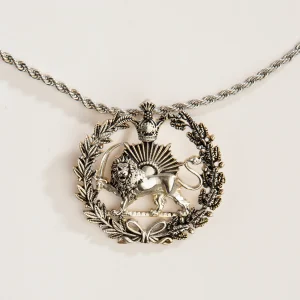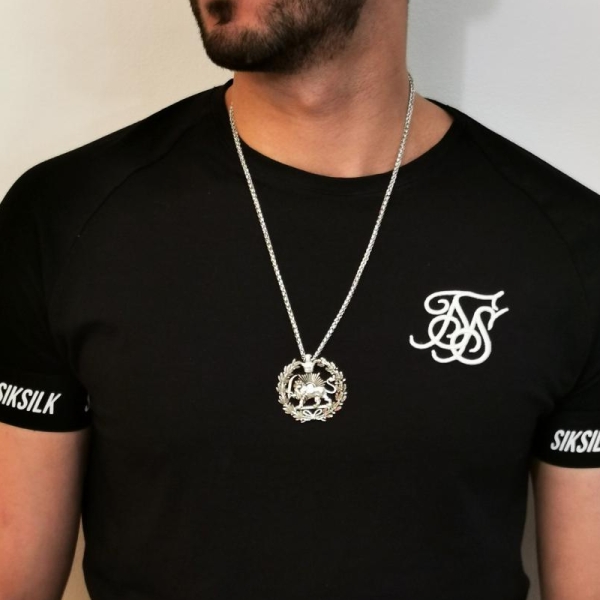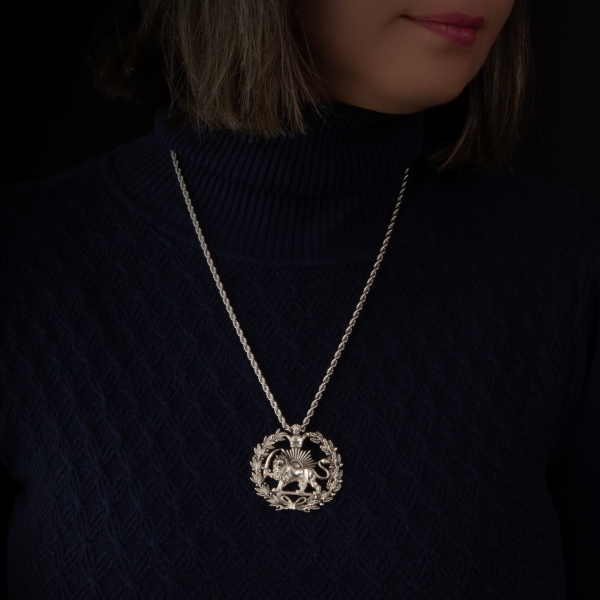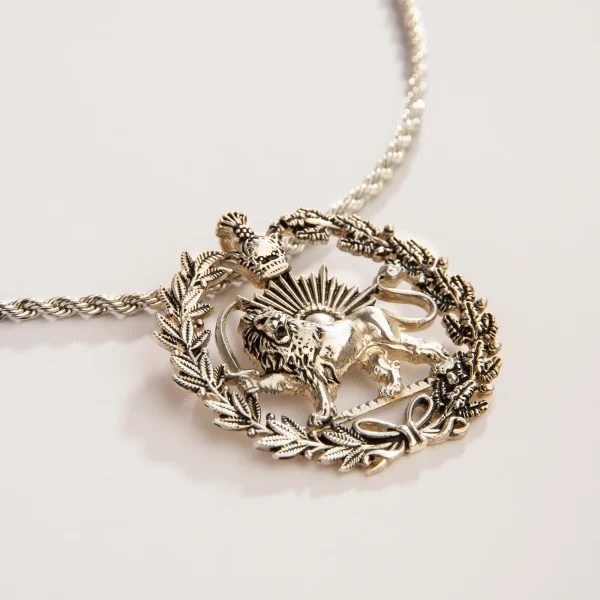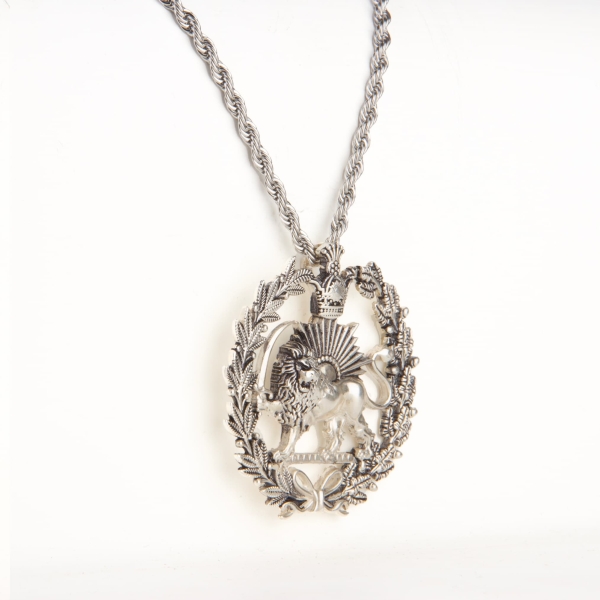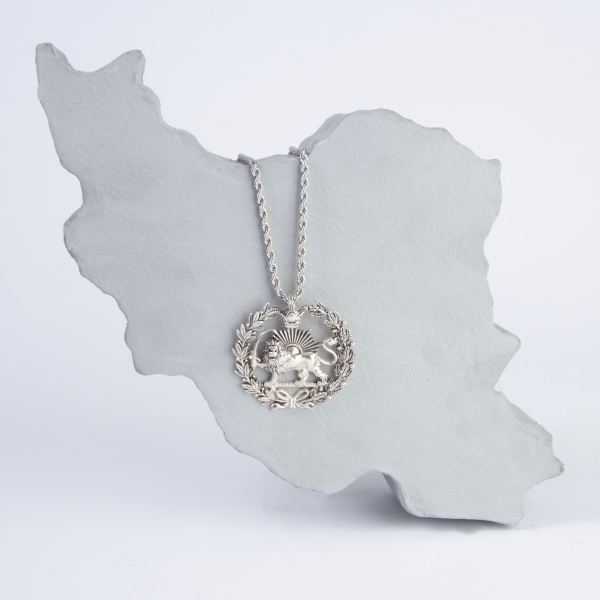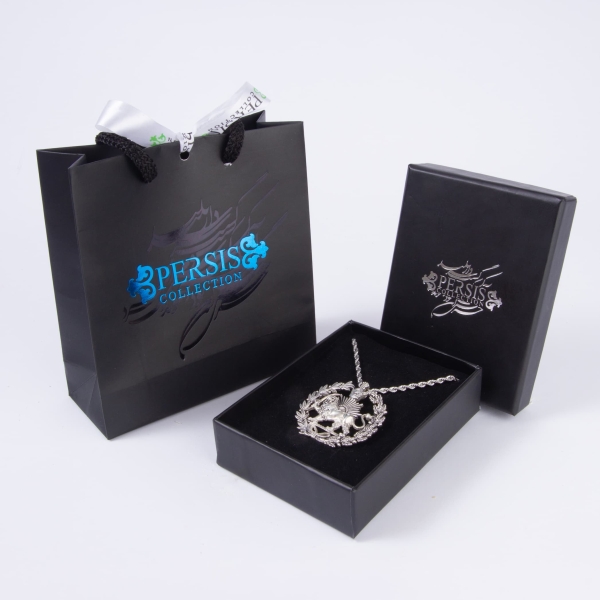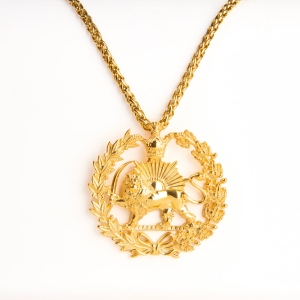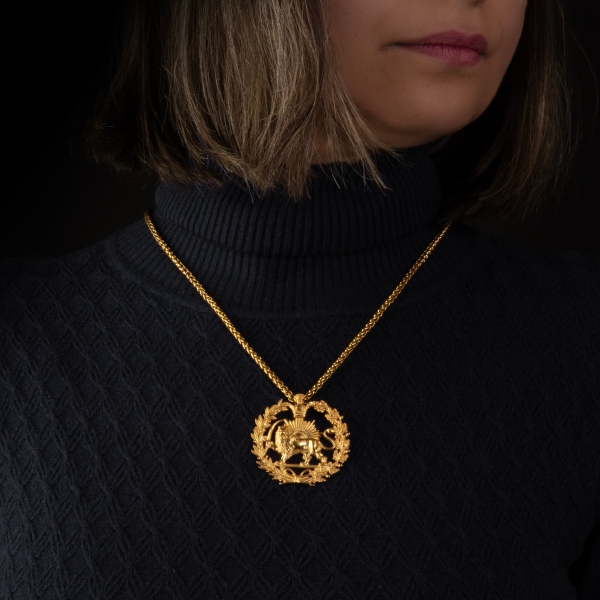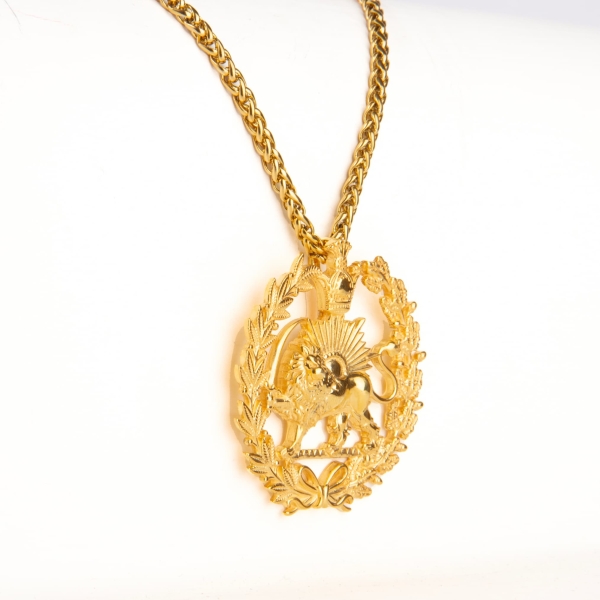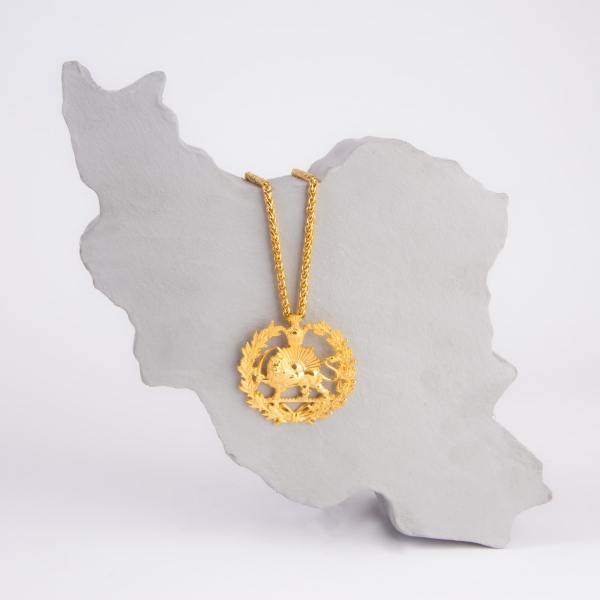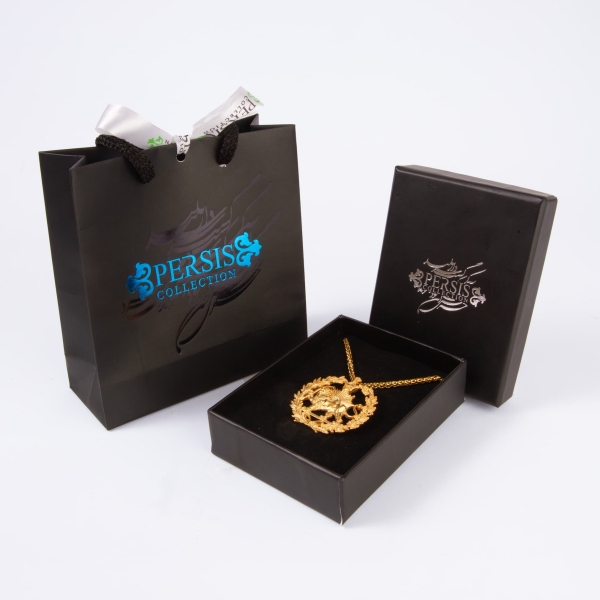Farvahar Collection
Explore the Persian Farvahar Collection at Persis Collection, where ancient symbolism meets modern design. Our curated selection features Persian Farvahar jewelry, necklaces, rings, cufflinks, and more, each piece meticulously crafted to capture the essence of this powerful symbol of Iranian heritage.
Gold Iran Bracelet, 18k Gold
Original price was: $192.00.$112.64Current price is: $112.64.Add to cartAncient Persian Wisdom Tile – Handcrafted Ceramic Art with Faravahar Symbol
$281.60 – $422.40Select options This product has multiple variants. The options may be chosen on the product page24k Gold Farvahar Ring
$78.08Select options This product has multiple variants. The options may be chosen on the product pageFarvahar Collection Gift Set
Original price was: $352.00.$253.44Current price is: $253.44.Add to cart18k Gold Farvahar Necklace-Large
$619.52 – $929.28Select options This product has multiple variants. The options may be chosen on the product pageFarvahar Clay Tile (K107)
$4.00 - $20.48Select options This product has multiple variants. The options may be chosen on the product pageThe Rich Heritage of Persian Farvahar
History and Significance of the Persian Farvahar
The Role of the Farvahar in Zoroastrianism
In Zoroastrianism, the Farvahar plays a crucial role as a spiritual symbol that accompanies individuals throughout their lives, guiding them to the spiritual realm after death. The Farvahar represents the soul’s immortality and its connection with God and the heavens. This profound symbolism aligns with the Zoroastrian philosophy of life, which emphasizes the principles of “Good Thoughts,” “Good Words,” and “Good Deeds.” The Farvahar’s design elements—such as the wings, circle, and ring-shaped elements—each carry symbolic meanings, reflecting the core values and beliefs of ancient Iranians.
Symbolic Meanings and Cultural Interpretations of the Farvahar
The Persian Farvahar is more than just a religious emblem; it is a cultural and philosophical icon that has shaped Iranian identity for centuries. The Farvahar’s various components each have specific meanings: the human figure represents wisdom and intellect, the wings symbolize spiritual ascent, and the circle signifies eternity and continuity. These elements combine to create a symbol that embodies the ethical and spiritual beliefs of ancient Iran, promoting a life of righteousness, ethics, and spiritual growth.
Cultural and Philosophical Interpretations of the Farvahar
Beyond its religious significance, the Farvahar has been embraced as a symbol of Iranian independence and national pride. It represents the enduring spirit of the Iranian people and their cultural heritage. In modern times, the Farvahar continues to be a powerful symbol of identity, reflecting a deep connection to Iran’s historical and cultural roots. The Faravahar signification extends beyond religious contexts, resonating with those who value its cultural and philosophical meanings.
Faravahar Symbol in Modern Iranian Culture
Today, the Faravahar remains a prominent motif in Iranian culture, appearing in various forms of art and design. Its presence in contemporary Iranian art highlights its enduring relevance and the ongoing effort to preserve and celebrate Iranian heritage. From the Farvahar jewelry collection, such as necklaces and rings, to the Iranian Farvahar wall decor, the symbol is widely used to express a deep cultural connection and pride.
The Farvahar in Contemporary Art and Design
The Persian Farvahar has transcended its historical and religious origins to become a popular symbol in modern art and design. Artists and designers are inspired by its intricate design and profound meanings, incorporating the Farvahar into various forms of visual art, jewelry, clothing, and decorative items. This resurgence of interest in the Farvahar reflects a broader movement to reconnect with and preserve Iranian cultural heritage.
Persian Farvahar Jewelry and Accessories
In the realm of fashion and design, the Farvahar is a popular motif featured in Persian Farvahar jewelry, such as necklaces, rings, cufflinks, and suit pins. These pieces often blend traditional designs with modern aesthetics, making them suitable for both formal and casual wear. The Persian Farvahar necklace, in particular, is a favorite among those looking to incorporate a piece of Iranian history into their daily lives. Iranian Farvahar accessories, like keychains and cufflinks, offer a subtle yet meaningful way to showcase one’s cultural pride.
Farvahar in Decorative and Artistic Items
The Farvahar is also featured in various decorative and artistic items, such as the Farvahar Ghalam Zani Plate, Persian Farvahar Backgammon sets, and Iranian Farvahar wall decor. These items not only serve as beautiful home decor pieces but also as symbols of Iranian heritage and artistry. The Farvahar’s influence extends to modern design elements, with Farvahar-themed bags, sculptures, and keychains becoming increasingly popular.
Modern Interpretations of the Farvahar Symbol
Contemporary artists have reinterpreted the Farvahar, creating innovative works that blend historical authenticity with fresh perspectives. Whether in sculptures, paintings, or digital art, these modern interpretations of the Farvahar maintain its traditional significance while offering new ways to engage with this ancient symbol. This creative evolution demonstrates Farvahar’s ability to adapt to changing cultural contexts while retaining its core meaning and significance.
The Market for Persian Farvahar Items
Popular Persian Farvahar Items for Collectors and Enthusiasts
The market for Persian Farvahar items is diverse, catering to collectors, enthusiasts, and those looking to express their cultural identity. Popular items include Persian Farvahar jewelry, such as necklaces, rings, and cufflinks, as well as decorative pieces like Farvahar sculptures and wall decor. These items not only make great additions to personal collections but also serve as meaningful gifts that celebrate Iranian heritage.
Farvahar Gold Jewelry and Accessories
Farvahar gold jewelry, including pendants and rings, is particularly sought after for its elegance and symbolic meaning. These pieces are crafted with precision, often featuring intricate designs that highlight the Farvahar’s beauty and significance. Whether you’re looking for a Farvahar Pendentif or a gold-plated Farvahar keychain, these items offer a blend of luxury and cultural significance.
Unique Persian Farvahar Collectibles
For those interested in unique collectibles, the Farvahar Ghalam Zani Plate and Persian Farvahar Backgammon sets offer exquisite examples of traditional Iranian craftsmanship. These items are not only functional but also serve as beautiful decorative pieces that reflect the artistry and cultural heritage of Iran.
How to Choose the Perfect Persian Farvahar Piece
When selecting a Persian Farvahar item, consider the type of product, its design, and its intended use. For jewelry enthusiasts, a Persian Farvahar necklace or Iranian Farvahar ring might be ideal for daily wear, while a Farvahar sculpture or wall decor could be a perfect addition to a home or office. At Persis Collection, we offer a wide range of Persian Farvahar items, ensuring that you can find the perfect piece that resonates with your style and cultural pride.
Persian Farvahar Collection FAQ:
- What is the Persian Farvahar?
The Persian Farvahar is an ancient symbol deeply rooted in Zoroastrian beliefs, representing protection, spiritual guidance, and the eternal spirit of humanity. - What is the meaning of the Faravahar symbol?
The Faravahar symbolizes the soul’s immortality, the connection between humans, God, and the heavens, and the principles of “Good Thoughts,” “Good Words,” and “Good Deeds.” - What are the different types of Persian Farvahar jewelry?
Persian Farvahar jewelry includes necklaces, rings, cufflinks, suit pins, and pendants. These pieces are designed to reflect the cultural and spiritual significance of the Farvahar symbol. - Where can I buy authentic Persian Farvahar jewelry and accessories?
You can find a wide range of authentic Persian Farvahar jewelry and accessories at Persis Collection, the largest and most trusted online gallery for Persian artifacts. - What is the significance of the Farvahar in Iranian culture?
The Farvahar is a symbol of Iranian identity, cultural heritage, and independence, embodying the ethical and spiritual beliefs of ancient and modern Iranians. - How can I incorporate the Farvahar into my home decor?
Farvahar-themed items such as sculptures, wall decor, and Ghalam Zani plates can add a touch of Iranian culture and elegance to your home decor. - What materials are used in Persian Farvahar jewelry?
Persian Farvahar jewelry is often crafted from precious metals like gold and silver, featuring intricate designs that highlight the symbol’s beauty and meaning. - Are there contemporary uses of the Farvahar symbol in fashion?
Yes, the Farvahar is widely used in contemporary fashion, appearing in jewelry, clothing, and accessories, reflecting both historical significance and modern design trends. - What is the history behind the Farvahar symbol?
The Farvahar dates back to the Achaemenid period over 2,500 years ago and has been a significant emblem in Zoroastrianism and Iranian culture ever since. - Why is the Farvahar a popular motif in modern Iranian art?
The Farvahar’s profound symbolism and majestic appearance make it a popular motif in modern Iranian art, symbolizing cultural pride and heritage.






